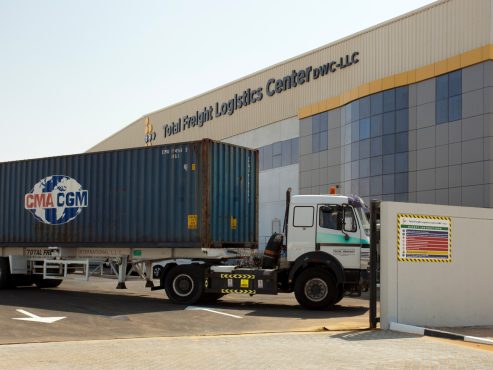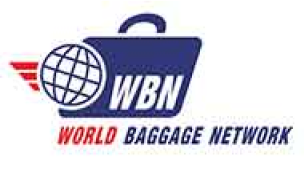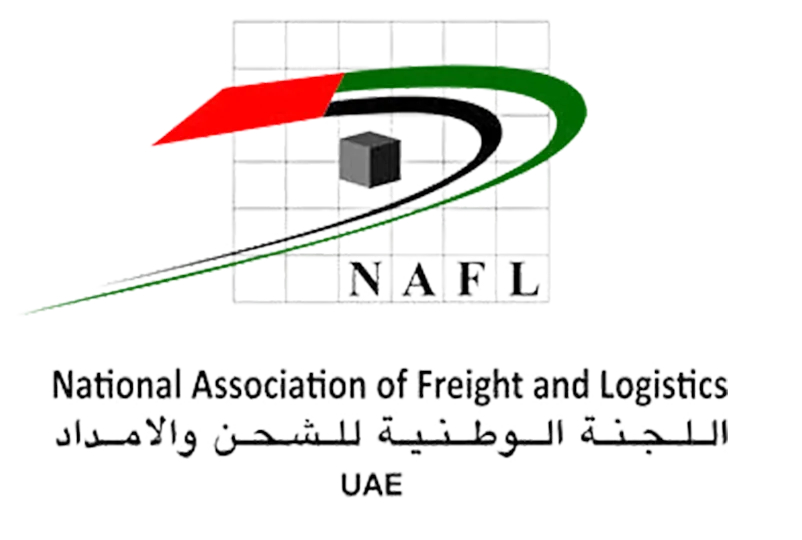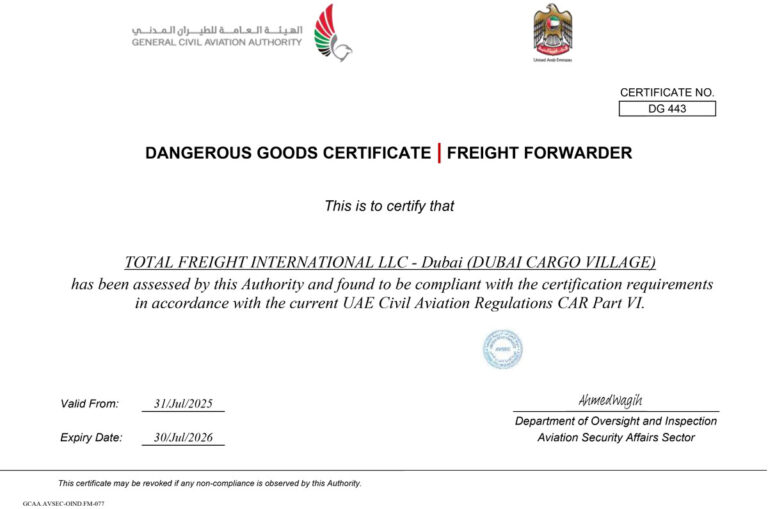Dangerous Goods Transportation
- DG Handling & Packing
- Freight Forwarding
- Customs Clearance
TFI has 30+ years of operational expertise in handling dangerous goods such as flammable liquids & solids, explosives, and corrosives, to name a few. We ensure that every shipment is meticulously packed, consigned, and documented in strict adherence to all relevant transport regulations. Our staff have successfully undergone rigorous pre-qualification and testing processes, earning TFI a license from GCAA to handle dangerous goods in the UAE.
Do you have dangerous goods that need to be transported anywhere in the world promptly and safely? You can count on us.
Inquire Now
Our Services
With a focus on training, international standards, and emergency response readiness, our services prioritize the safe and responsible management of dangerous goods. So, you can rely on us to safeguard people and the environment while meeting your transportation needs for hazardous materials.




Exploring the classifications of hazardous materials is crucial in determining the appropriate handling, storage, and transportation procedures for each hazardous material.

Gasses are confined in containers under elevated pressure, and their rapid expansion upon release poses a potential threat. Certain gasses are highly flammable, igniting quickly and presenting a significant fire hazard. Meanwhile, others are toxic or asphyxiating, posing harm to humans by affecting the respiratory system. These characteristics categorize gasses as dangerous goods during transportation.
Air transport of gasses demands specific precautions and equipment, such as dry ice, to prevent their uncontrolled expansion. The containers utilized for transportation must withstand the gas pressure and prevent leaks. Employees must undergo specialized training and obtain appropriate licenses to ensure the secure transport and handling of gasses.
The fumes emitted by flammable liquids pose a hazard, spreading rapidly and igniting, potentially leading to a swiftly spreading fire. This categorizes them as significant hazardous materials both in the workplace and during transportation. Examples of flammable liquids include gasoline, lithium batteries, diesel fuel, ethanol, and paint thinner.
Handling these hazardous liquids necessitates appropriate packaging, approved containers, and accurate labeling. It is crucial to segregate these materials from heat sources and ensure adequate ventilation to prevent the accumulation of flammable fumes. Fire protection services and suppression systems must also be installed in storage areas. Also, providers involved in transporting these materials must ensure that vehicles equipped with fire protection and other relevant safety features are utilized.
Highly flammable solids are perilous substances that readily ignite and burn rapidly, posing a substantial risk of fires. These solids, with their low ignition temperatures, can be easily set ablaze by a spark or other ignition sources.
Moreover, numerous flammable solids release combustible fumes, exacerbating the spread of fire and escalating the likelihood of explosions.
Adhering to regulations that encompass labeling, packaging, and safety measures is crucial when storing, transporting, and using flammable solids. Proper handling and storage practices for these hazardous materials are imperative to prevent fires, ensuring the protection of individuals, property, and the environment. Adequate training for employees on the correct procedures for handling these dangerous goods is essential.
Oxidizing substances, exemplified by oxygen and chlorine, have the capacity to supply gasses that support combustion, rendering them hazardous. Similarly, organic peroxides, including benzoyl peroxide, carry inherent dangers, with the potential for spontaneous combustion or detonation if mishandled or incorrectly transported.
Both oxidizing substances and organic peroxides have the propensity to emit substantial heat during reactions, posing a risk of fires and explosions. Certain organic peroxides are recognized for their rapid decomposition, releasing gasses that pose a significant threat to human safety and the environment.
Toxic substances represent perilous materials demanding careful handling due to the substantial risks they pose to both humans and the environment. Inhalation, ingestion, or skin contact with these hazardous materials can result in death, injury, or harm to human safety. Examples of toxic goods encompass pesticides, hazardous chemicals, and certain medical products.
Infectious substances refer to materials contaminated with pathogenic microorganisms capable of causing human disease during transportation. These microorganisms can propagate disease, presenting a significant threat to public health if not handled, packaged, and transported correctly. Included in this category are medical or clinical waste, blood, and tissues from infected animals.
Apart from adhering to proper packaging procedures, employees must strictly follow safety protocols by maintaining a safety data sheet when working with infectious substances. Adherence to regulations includes wearing personal protective equipment and practicing good hygiene to ensure safe handling and transportation.
Corrosives are substances with high reactivity that yield significant chemical effects. Their reactive nature initiates chemical reactions leading to the deterioration of other materials upon contact. When these materials encounter living tissue, they can inflict severe injuries. Flux, chlorides, and batteries are a few examples of corrosive substances.
Various hazardous substances in shipments pose a threat to both human health and the environment when mishandled, inadequately packaged, or improperly transported.
These materials have the potential to instigate fires or explosions, release flammable gases, or adversely affect human health when exposed to them in the environment, even without direct physical contact.
Examples of miscellaneous dangerous substances encompass volatile solids and spontaneous combustibles, such as lithium batteries that emit flammable gases upon contact with water.
Shippers are required to appropriately label and package these goods in secure storage containers. Employees handling these substances should also wear protective gear, including gloves, eye protection, and suitable clothing.
Why Choose TFI For
Dangerous Goods Transportation?
Why Choose TFI For Dangerous Goods Transportation?

Backed by our longstanding commitment to safety and an in-house team of trained DG specialists, TFI is the preferred partner of businesses seeking reliability and operational excellence.
- Licensed DG agent by the General Civil Aviation Authority of UAE
- Certified in-house DG specialists
- Global freight forwarding
- Customs brokerage
- End-to-end logistics management
- DG-approved warehouse
- Extensive global agent network
- An ISO-9001 & ISO-45001 certified company
Our networks




About Us
With over 30 years of proven excellence in the freight and logistics industry, TFI specialises in providing a single window to a world of logistics solutions.
We take pride in our solid logistics infrastructure and global network, which enable us to smoothly handle the entire scope of international cargo transportation. Our team also helps local and international businesses venture into new markets worldwide using our IOR/EOR services.
By crafting innovative, practical, and comprehensive solutions exclusively tailored to your pressing challenges, we are always ready to go the distance for you.

ISO 9001:2015
ISO 45001: 2018
www.tuv.com
ID: 9000012225
Industries we serve

Automotive

Aviation & Aerospace

FMCG

Cosmetics

Defence

Defence

Marine

Marine

Hi-Tech

Healthcare

Oil & Gas

Food & Beverage

Industrial

Security

E-commerce

Exhibition & Events

Fragrance
What our clients say about us

Recently we had to send a consignment containing Corporate Gifts & Promotional items to our client in Djibouti, for their upcoming social event. Yes, plenty of Freight Forwarding Agencies exists in Dubai, but, none was willing to take on this challenge of expediting the shipment by air to ensure that both, our client in Djibouti as well as us, the vendor would be able to meet the stringment delivery deadlines.

During our professional relationship with Total Freight, it has always been a pleasure to work with them. As usual, Total freight’s greatest assets are its employees. They are driven to provide world class service. Their attention to detail is commendable. They have always done a stellar job for us. Total freight has been managing our air freight from scratch to finish.

"TFI has been our go-to partner to handle our local operations in the UAE.
The team behind TFI went to great lengths to tailor a custom solution for us. Not only did they take care of the import, fulfillment and fast last mile delivery UAE-wide, but they went beyond the scope by providing unpacking, assembly & customer calling services! Need delivery to KSA? TFI can do it.
Our Clients














